Eating
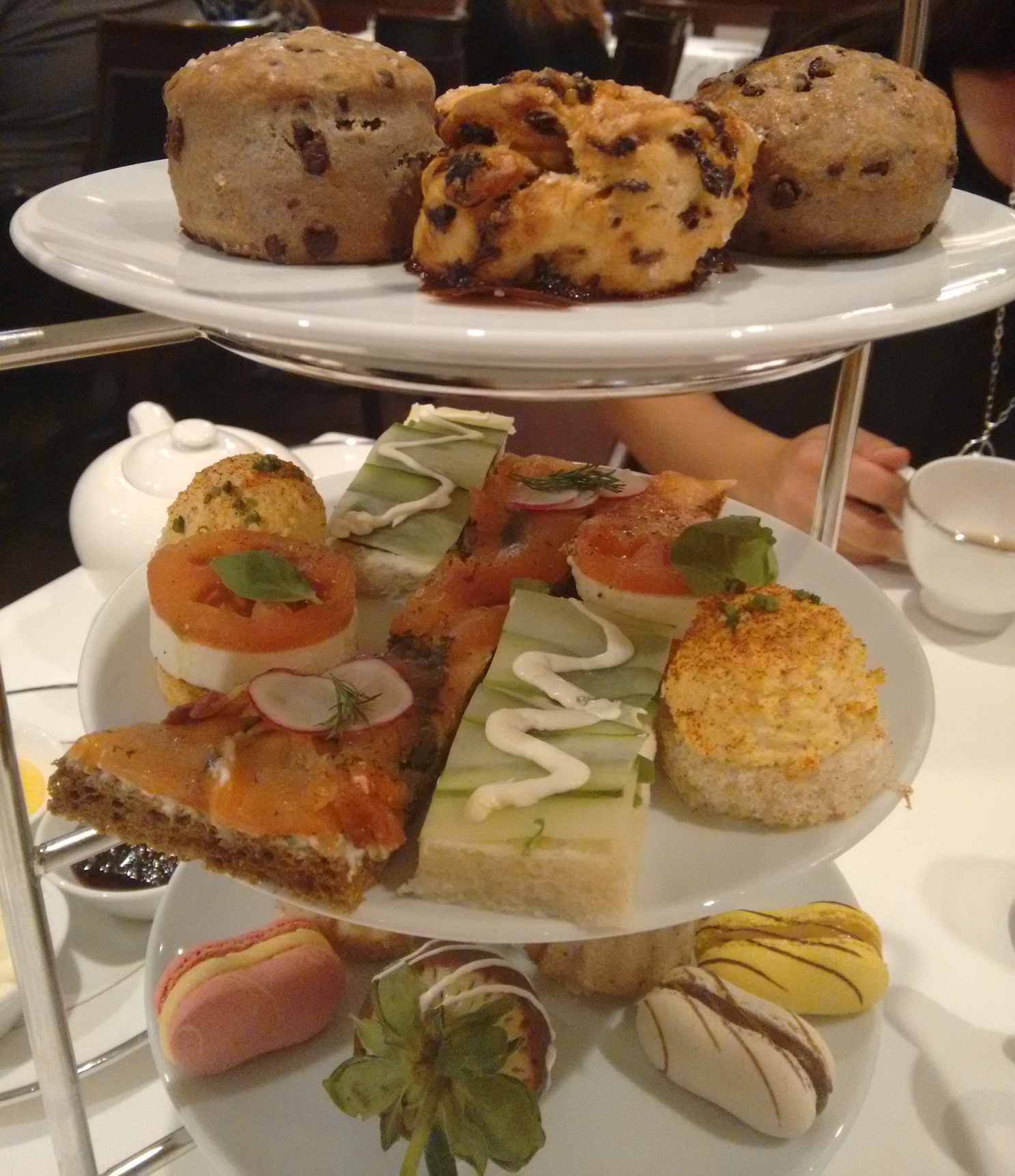
Yes! You can eat this!
The answer to this one is tricky. It’s yes…but with a caveat.
Here’s how it’s yes: there is literally no food off limits in intuitive eating and your non-diet way of life. Pizza? Yes. Chocolate cake? Hell yes. Kale? Yes! (If you want it)
You get to eat ALL the different types of foods you want, when you want them and yes, as much as you want of them.
And here’s the caveat: It’s not just eating anything and everything willy nilly without a thought to how it goes down or how you feel after.
Intuitive eating is…nuanced. It’s not just an end-point — it’s also the process that takes you from that stressed-out, restrictive, over-eating dieting-type eater you were to a completely no guilt, drama-free, normal eater (before the new normal meant “diet”) that knows when to eat and when to stop. The process, however, can sometime feel anything but intuitive.
If kicking diet mindset and behavior was easy, we wouldn’t need a process called Intuitive Eating. But it isn’t, and we do.
While you’ll be liberating all the foods from Food Jail and eating to satisfy your appetite, you’re going to learn to stay present and non-judgmental instead of fearful and guilty. You’re going to learn to tune into your body to hear the subtle messages it sends you about when to eat, and how much. If you’ve been a dieter or binge-eater for a while, this hyper-awareness is going to feel really strange and uncomfortable for you at first.
Let me reassure you, this will not always be the case. The point of intuitive eating is not to remain on strict mealtime vigil, putting all your concentration into every bite. The point is to eventually know intuitively when to stop eating.
Ever try to get a baby to eat more food than she’s hungry for? She’ll slam her mouth shut, shake her head, and get downright cranky at you for trying to fly that damn airplane into her mouth again. She knows, without thinking about it at all, when she’s done eating, because we are ALL born with the intuition to know how much food we want and need to eat. That baby is in charge of her appetite. And then somewhere along the way, diet culture robs us of that intuition and convinces us we need to be told how to eat.
So yes, you’re going to eat whatever it is you want. And also, for now, you’re going to pay attention to what you’re eating. A lot of attention at first, and much less later on, until it’s all instinct. And it will become instinct.
And even later, when you’re ready, you can even give some thought toward nutrition. If you want. But that’s a story for another day.
Subscribe and get my free guide:
Why you overeat …and what to do about it
Click here if you just want my newsletter!
Eating
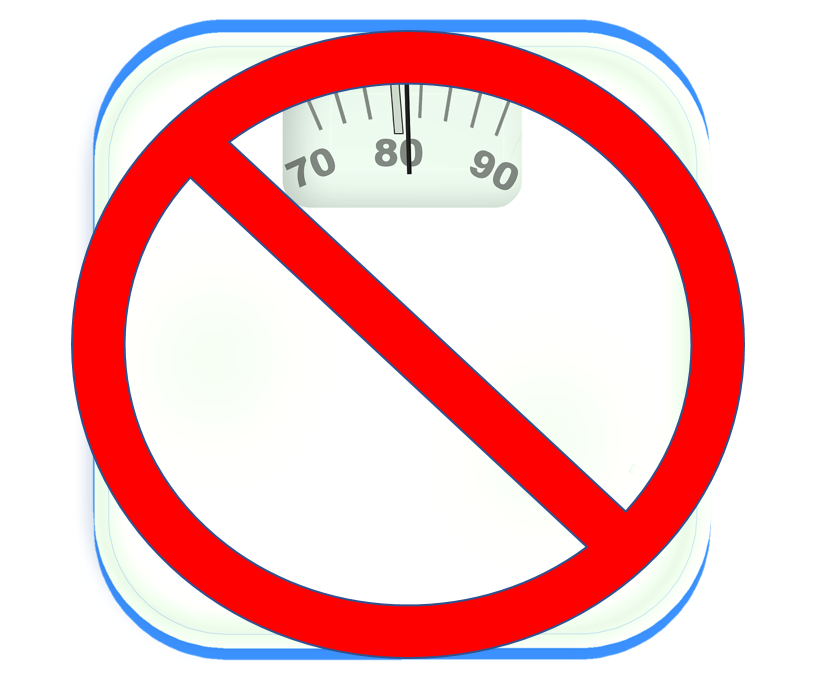 Imagine this scenario:
Imagine this scenario:
You’ve been doing pretty well making headway with internally regulated eating (aka intuitive/attuned/mindful eating/eating competence), enjoying formerly forbidden foods with ease and seeing a decrease in the number of times you overeat. You’re feeling pretty relaxed around food and making choices based on what you actually like instead stupid diet rules. Food restriction is becoming a distant memory.
You’re doing a great job of embracing body acceptance, learning compassion towards yourself, and generally feeling much more comfortable in your skin. You’ve even bought a few new outfits and think you look pretty damn awesome.
You’re feeling so confident, in fact, that you decide to get on the scale. “If I’m feeling this good, I must have lost weight!”…even though that was never the point of all this good work.
Then you see the number. Surprise! It’s your highest weight ever.
Your mood comes crashing down. You feel the need to dive into a gallon of ice cream and get lost forever while simultaneously tossing out every last delicious food in your cupboard. You feel that all the clothes that looked cute on you before you got on the scale now make you look horrible. Worst of all, you feel completely unacceptable, unlovable, and unworthy. You so desperately want to diet to “correct” this weight situation even though it wasn’t even a problem a few minutes before.
If this has happened to you, it’s time to get rid of your scale.
At the height of my diet addiction, I sometimes weighed myself three times a day. The act of weighing was not an emotionally neutral act. I was constantly attempting to reassure myself that my societal acceptability – and depending on the number, superiority – was intact. If the number didn’t jive with what I expected, I was obviously a failure. I used these feelings to ensure that I never ate enough to satisfy my appetite.
Wow, just writing that kind of makes me feel sick.
After I started eating to satisfy my appetite, my weight started to go up rapidly. This, of course, is a normal bodily response to weight suppression below one’s natural set point, and I knew that, but before I was fully there body acceptance, the number glaring back at me, judging me, was just hard to see.
But because I had finally committed to letting my body do its own thing, to trust in its wisdom as I learned to enjoy eating again in a relaxed, healthy-for-me fashion, I knew I had to get rid of the scale that had the power to take me from a perfectly fine mood to a much darker, critical one. I knew, at last, that I didn’t need its judgement anymore.
The act of stepping onto the scale is one of self-sabotage. We are telling ourselves that we don’t trust in the process our body needs to go through to reclaim joy and normalcy in eating. We bargain with ourselves: “I’ll eat normally only if I haven’t gained weight…” And then all our good work in eating and body acceptance is undermined. We start restricting – maybe even unintentionally – and the next thing we know, we are overeating again.
If this has happened to you and you’re in a tailspin of bad body feelings, ask yourself – how did you feel about yourself before you got on the scale? If you felt good, why can a number that only represents the Earth’s gravitational pull on your body take that away? What was it you were hoping to find from the number you saw there? Approval? Acceptance?
The scale is simply not a way to gauge your non-diet journey progress, especially if you came from Diet Hell. Metabolic alterations from dieting and other processes that are out of your control have much more to do with what happens to your weight than eating-without-a-diet-plan.
Society puts so much emphasis on the weights of women and their ability to achieve and maintain smallness. This is not about our health; it’s about keeping us obedient. As long as you keep buying into this obedience by judging yourself by a number on the scale, you will continue to prop up the anti-female diet culture that denies us everything. And I know you don’t want to do that!
So the fix is easy: Get. Rid. Of. The. Damn. Scale. You don’t need to know the number to have a great life. It doesn’t tell you anything about your eating progress. It doesn’t measure your worthiness. And it makes you feel bad.
Sayonara, scale. We’ll do better without you.
Subscribe and get my free guide:
Why you overeat …and what to do about it
Click here if you just want my newsletter!
Eating

Aaron and I are kicking it solo (duo?) in this episode of ranty rantings about bad science around weight and health, celebrity weight loss pressure, and why we need our fat positive role models so damn badly. Some of my favorite Dietitians Unplugged podcast episodes are when Aaron and I get to catch each other up with what’s on our minds, and this is one of those times.
Listen on:
Subscribe and get my free guide:
Why you overeat …and what to do about it
Click here if you just want my newsletter!
Eating

I loved this conversation between our fellow dietitian Rebecca Scritchfield and Aaron and I. Rebecca recently published the amazing non-diet self-care manual, Body Kindness (it’s great, please buy ASAP) and she talks about her personal journey of getting to body kindness herself. Rebecca’s passion is infectious and her no-hold-barred opinions will fire you up.
Listen on:
Show notes:
Peter Attia’s TED Talk
Body Kindness
Subscribe and get my free guide:
Why you overeat …and what to do about it
Click here if you just want my newsletter!
Eating
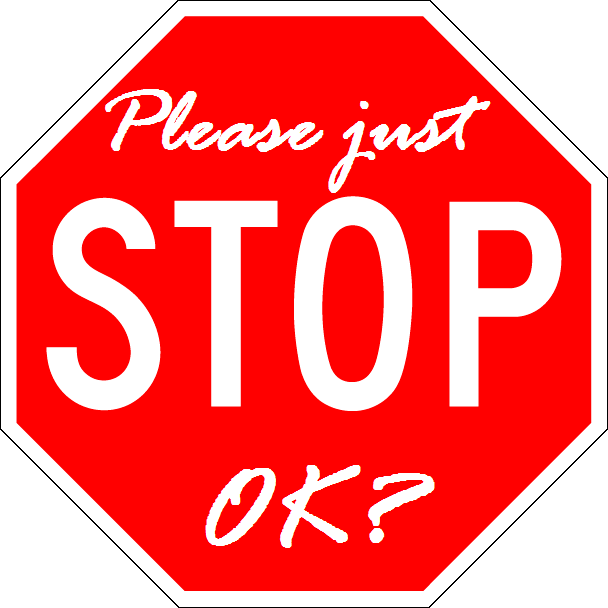 This weekend I saw this SELF magazine article on Oprah’s weight loss. So, I decided to write them a letter! I’m over magazines posing as advocates for female empowerment when they are just more of the same oppression.
This weekend I saw this SELF magazine article on Oprah’s weight loss. So, I decided to write them a letter! I’m over magazines posing as advocates for female empowerment when they are just more of the same oppression.
Dear SELF,
Your article on Oprah’s weight loss was disappointing, however not surprising.
Oprah has not found a permanent weight loss cure, she has simply found a new way to diet. And like the other 95% of people who attempt to lose weight in any way, she will most likely regain this weight in 3 to 5 years. If she manages to develop the eating-disorder-like tendencies that the few people who sustain weight loss beyond this time frame do, she may be slightly more successful, but her life will then revolve around her diet. Is this what we expect one of the world’s most successful women to be concentrating on? Her diet? This expectation is unacceptable for any woman.
The science on weight loss is now clear: all but a tiny fraction of people who attempt weight loss will regain some, all, or even more of the lost weight in 3 to 5 years after the initial weight loss is achieved. Even Weight Watchers, by their own data, cannot show better results. A weight loss-focused mindset drives the restriction/disinhibition cycle and does not yield significant long term weight loss or better health for most people.
I am a former SELF subscriber. I read your magazine faithfully in my most restrictive dieting days, and unfortunately, the weight loss-centered advice in your magazine aided and abetted my extreme disordered eating. Women don’t need to change their body shapes to achieve their best selves, but I know this is what sells magazines. The dangled carrot of a “better looking” or smaller body will always ensure you have subscribers. A focus on body appearance plays women small, though; it robs them of body autonomy and the time and energy to pursue real equality and power in society (Did you know women don’t have this yet? Surely you do.).
I’d like to invite SELF magazine to change it’s editorial focus from weight-centered to non-weight-and-body-appearance-centered. I’d like to invite you to take a truly feminist, body positive stance which does not include the promotion of weight loss or the adherence to cultural beauty standards (because why do we even need beauty standards? Are we not so much more than this?). We can have discussions about health that do not involve weight loss or our appearance. I’d like to invite you to embrace true size diversity by featuring, regularly, women of all shapes, sizes, colors and abilities in your magazine.
There are a growing number of us who refuse to any longer play the weight loss game, and have chosen a weight-neutral, non-diet path to health. We have been damaged by the diet industrial complex but refuse to let it rob of us true health and vitality any further. There is no magazine* for us.
Supporting the weight loss paradigm does not improve women’s lives. Oprah is not better because she’s smaller. Someone temporarily losing weight on Weight Watchers or any diet is not revolutionary, it’s more of the same. I hope you will decide to do better by women someday.
Glenys Oyston, RDN
Dare To Not Diet
If we want change, we are going to have to start demanding it, loudly, publicly, and all the time. It’s tiresome. I don’t want to do it, but I’m going to anyway. Will you join me?
*Except one magazine!
Subscribe and get my free guide:
Why you overeat …and what to do about it
Click here if you just want my newsletter!
Eating
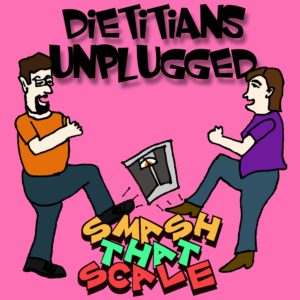
Needless to say, I’ve been remiss in posting the last few Dietitians Unplugged podcasts here, on my blog. I’m particular about things being complete, so I’m going to tuck the last few eps into one neat and tidy post for you all to find some day in the future when you’re casting about the internet, looking for some vintage podcasts…
Or if you’re not caught up, now’s your chance!
New-and-super-cool episodes coming soon!
Episode 18: Binge Eating Disorder Conference Live Report
Aaron and I had a few minutes during the conference to chat about what we learned. Read more about how the conference went here.
Episode 17: Intuitive Eating and Weight Gain
You asked and we answered! One of our listeners asked us if we felt Intuitive Eating promoted weight gain. Find out what we had to say.
Episode 16: Teaching Kids the Truth: Weight Stigma and Body Image
Aaron and I team up with Carmen Cool, MA, LPC and a very wise teen who schools us on body image and young people and how they are unwittingly reinforced by adults.
As always, you can find us on iTunes, Stitcher and Libsyn.
Subscribe and get my free guide:
Why you overeat …and what to do about it
Click here if you just want my newsletter!
Eating
When I was dieting, I had little time for anything else but thoughts of food and exercise: what I could eat, what I couldn’t, when could I eat again, and what would fit into my days’ “points” allowance; when I would exercise, how I didn’t want to but had to, and how many calories I would burn on the stair-stepping machine (which I hated).
At the height of my dieting mania, when I was “acceptably” slim, I chose to pursue a career that I thought would support my dieting obsession: registered dietitian.
Imagine that – I chose a career that would help me diet. So not only would my personal time be filled with food preoccupation, so would my professional time. Looking back on this, I am astounded. When I was much younger, I had wanted to be other things: writer, fashion designer, even comedian (despite my intense performance anxiety). Where did that person go once on a diet?
It is only now that my dieting obsession is over that I occasionally wonder what I might have chosen for my mid-life career change other than dietitian. I still do love food and nutrition (no longer in an obsessive way) and I’m glad, ultimately, that this was the path I chose because I also love the clinical aspect of what I do, and thankfully the non-diet philosophy has given my practice so much meaning and substance. But imagine if I’d had more mental freedom in making this choice. But making a career choice during what was basically a mental health crisis is not how I wish that had gone down.
In the years that I became so restrictive with food, I had few hobbies. It’s not because I’m not an interesting person – I AM – but because planning all my meals and then fretting about how long I could withstand my hunger was first priority. I had a brief flirtation with pottery, and though I’ll never be any sort of visual artist, I wish I had continued on with it because it was truly the most meditative thing I have ever done while still creating something. Figuring out how to simultaneously eat food I liked while eating the fewest calories took first priority.
Anyway, once I stopped dieting, I had to spend some time figuring out how to eat again. It took me about five years to learn how to eat instinctively. Five years! So even after I stopped dieting, I still had to spend time learning how to not-diet. That part was better, because at least I learned how to make bagels and French baguettes and kimchi.
Once I was done learning to eat, I finally had time again. So I started writing this blog, and then I was asked to write by a magazine, and then I was asked to speak and I started to become an expert in my field of non-dieting. I took hula hoop classes and dance classes and learn to boogie board and travelled without worrying how I was going to stay on my diet. I ate dessert when I felt like it and got big swishy skirts I never would have worn even when I was thin because I worried they’d make me look fat. I started to really live in a way that I was afraid to do even when I was thin and never good enough. In between, I stopped dieting, and started living.
How much time is dieting and worrying about weight taking away from you? What creative or intellectual or fun or generous pursuits have you put aside because you had to think about food, or had to negotiate constant hunger and longing? What great or satisfying things would you do if you were freed from this diet prison?
Only you can answer that.
Tired of hating your body? Get my free guide, 6 Quick Strategies to Improve Your Body Image Now.
Eating
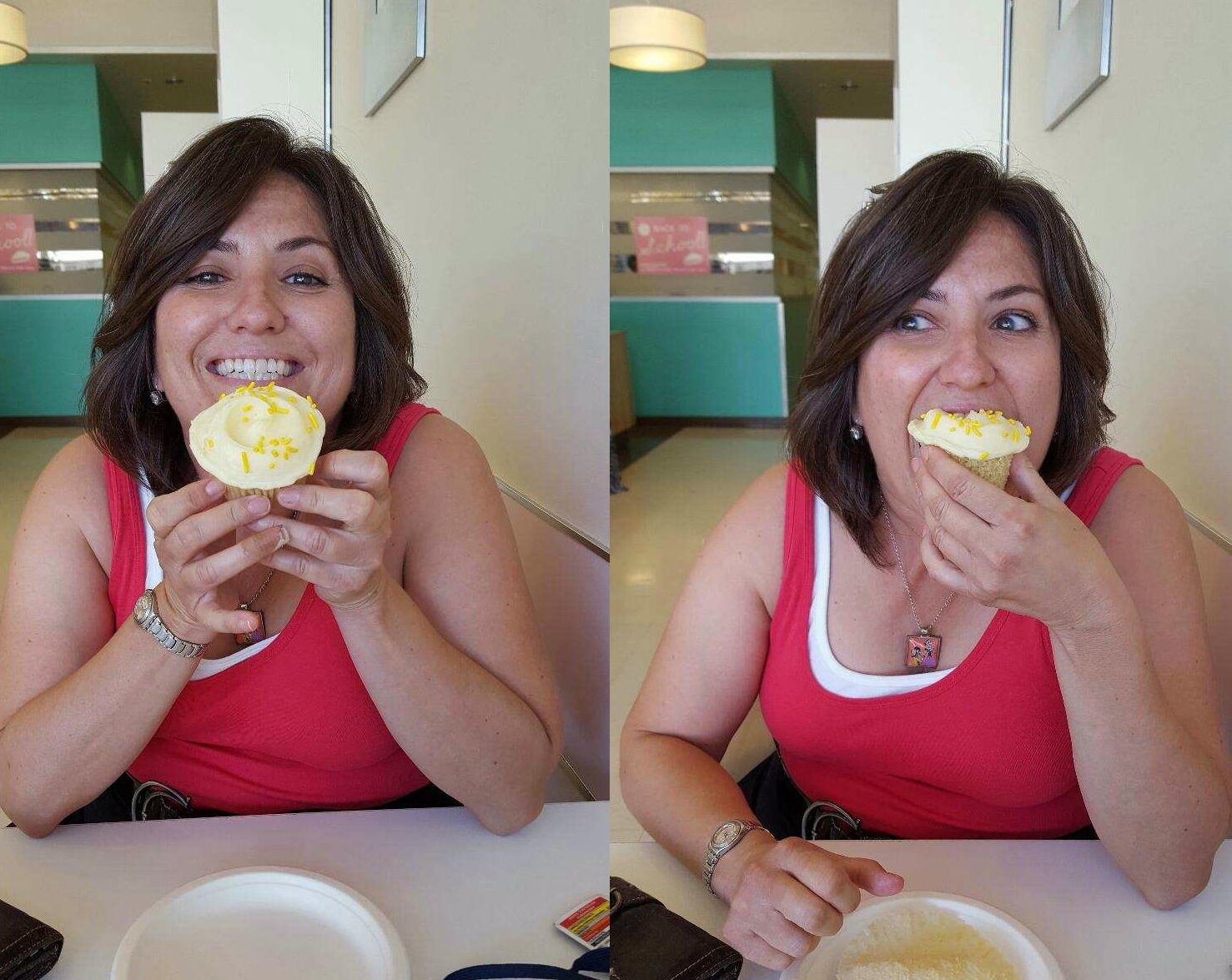
You could go on another diet. OR you could eat a cupcake!!
It’s the New Year – also known as National Diet Month, if you believe all the commercials we’re being bombarded with every five seconds right now. There’s a reason the diet industry ups its game right about now. It plays on the newness of the year, and people’s desire to feel a “fresh start,” especially after hectic end-of-year celebrations that leave some of us feeling drained.
Why not get a whole new you?? “Be better this year!” “Impress everyone with your ability to fit into unrealistic cultural beauty standards this year!” Ah, imagine if we only saw this kind of truth in advertising!
But you don’t need another diet. Another diet in which you may lose some weight – 5, 10, 20 pounds, maybe more – and then gain it all back because that’s what everybody does. Because that’s what our bodies are designed to do. Because being on a diet sucks, and ends up robbing you of the energy to do anything but diet.
On another diet, statistically speaking, you will end up the same weight or even heavier than you started, and you won’t even get your money back. That’s kind of like buying a new TV, watching it for a week and then it suddenly stops, and when you take it back to the store, they blame you for its malfunctioning. Um, no.
And you don’t need a whole new you. Your current you is A-OK. Maybe you’re still struggling with your eating – overeating, underrating, emotional eating – or with accepting your body, but that’s okay. Dieting doesn’t actually cure those problems; it creates more of them.
This year, if you want to do something – anything – for your health, consider a kinder path. Consider honoring your appetite, nurturing your body with acceptance, giving yourself permission to eat what and how much you want. Intuitive eating is a great place to start.
Whatever you do, you don’t need a diet that will only drive a bigger wedge between you and your appetite, between your brain and your body. You don’t need a new you.
Subscribe and get my free guide:
Why you overeat …and what to do about it
Click here if you just want my newsletter!
Eating
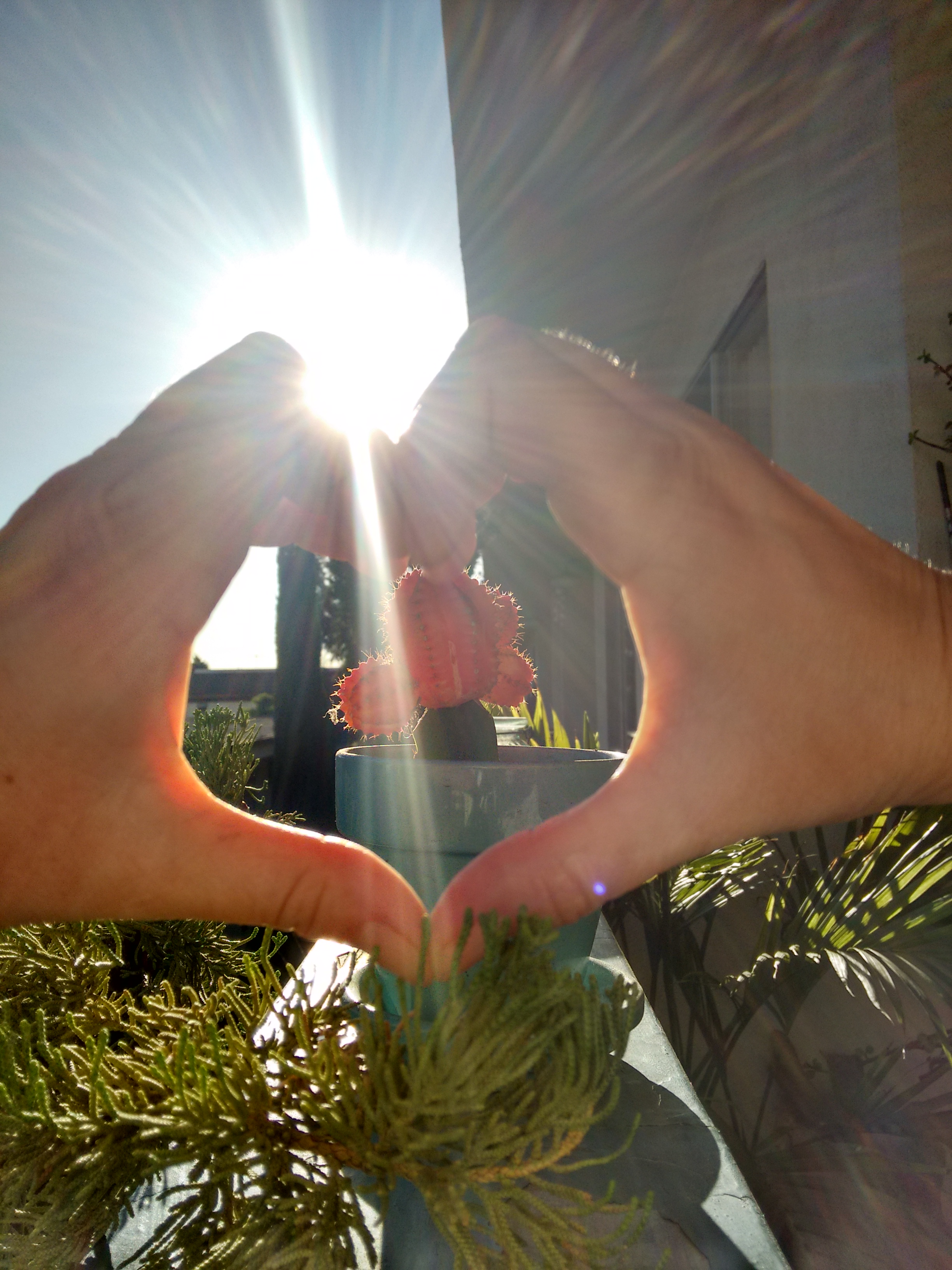 Is anyone else physically and mentally exhausted by the end of the Julian calendar year? This year was no exception for me, and with the addition of an emotionally draining U.S. election season that did not end in a way I had hoped it would, well, I went into a bit of a tailspin.
Is anyone else physically and mentally exhausted by the end of the Julian calendar year? This year was no exception for me, and with the addition of an emotionally draining U.S. election season that did not end in a way I had hoped it would, well, I went into a bit of a tailspin.
Actually, it was a huge, tornado-style tailspin.
Long story short, I ended up in a mildly depressed funk. I’d been here before, in the past, and I knew it would only last a few weeks during which I would remain a reasonably high-functioning human. But it doesn’t feel great. I do not sit will with the yuckiness of malaise.
As time marched on, I began to find myself preoccupied with my body. Specifically, how it looked. I found old, distant feelings arising – namely, dissatisfaction. As a result, I suddenly felt the tug of an old relfex: the desire to diet to control my shape and weight.
Now, luckily for me, I have a few things going in my favor: 1. I committed way back to never diet again. I never wanted to experience the bitter combo of futility, sadness and hunger that dieting left me with. 2. I have wholly committed to honor the wisdom of my body and have promised to fully support it in whatever shape and size it takes, even if it’s a size and shape that takes me out of the realm of societal acceptability. So dieting again IS NEVER an option for me, and for that, I’m so glad. I know that feeling bad about my body in these instances is the symptom, not the problem.
I started to remember other times I experienced depression, and my reactions in those times.
At the age of 22, when my mother was dying, I turned to dieting to distract myself and exert some form of control on my clearly out-of-control life.
At the age of 31, when I found myself in a committed, long-term relationship that didn’t satisfy me, I turned to dieting to get my “perfect” body to solve my unhappiness.
It’s obvious that dieting or a smaller body could not possibly have solved either of those problems, yet that’s exactly what I did to try to ease my suffering because diet culture tells us that we only need to lose weight to make our lives better. So it wasn’t surprising to me at all that this reflex arose at this time of sadness and insecurity and fear. The urge to deny myself my most basic need – food – in order to gain control at a time when I feel I have no control over what happens is so strong, but makes so little sense and is not kind.
Instead of diving back into restriction, though, I decided to just sit with those feelings. I made space for them. I pondered them. I thought about how that solution worked out for me in the past (spoiler alert: not so well. I still had to deal with all those messy feelings and situations in the end, and I was hungry on top of it). I knew I would not diet, and I knew I would have to sit with feelings of body and life and world dissatisfaction and just do my best to deal with it.
In enough time, I felt myself emerge, ever so slowly, from the darkness of these thoughts. I have a great support system at home and that helps. I did some gentle yoga to get myself back in touch with the physicality of my body — to sense what it felt like rather than what it looked like. I’m living with uncertainty without using starvation as a proxy for control. I’m caring for myself in constructive, not destructive ways. My body is not actually the problem, and I don’t need to try to change it.
If you’re finding yourself going down this particular road, stop and give yourself a hug. Think about what you really need. You’d be better off in a Snuggie with a hot cup of tea on the couch doing some comfort-TV binge-watching than trying to diet again. If you need to reach out for help, do that. Just know that dieting and weight manipulation is not real control, it’s not real power, and it just weakens us further. That’s not something that any of us needs in hard times.
Dietitians Unplugged News
Missing us? No fear! We’re just on a little end-of-year hiatus until January. In the meantime, catch up on all our episodes on Libysn, iTunes, or Stitcher.
Subscribe and get my free guide:
Why you overeat …and what to do about it
Click here if you just want my newsletter!